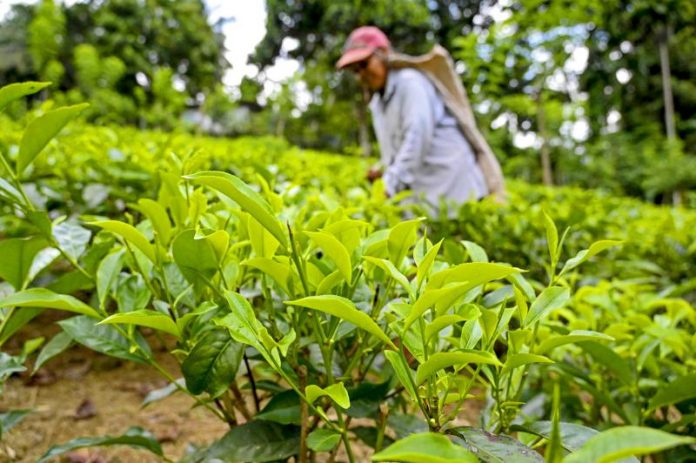Sri Lanka’s tea output could fall 40 percent in 2022, threatening livelihoods and export revenues, if a fertilizer agro-chemical ban suddenly imposed this year is continued, industry officials said.
“In 2022, all experts estimate that we will record a reduction in tea exports over 40 percent,” Bathiya Bulumulle, President of Sri Lanka’s Planters’ Association representing managers of commercial tea plantations and factories, who was re-elected for a second time said.
Without commenting on the Tea industry set back expected this year (in 2022) Plantation Minister Dr. Ramesh Pathirana said the total tea production had increased by 21 million in 2021 compared to 2020 despite the shortage of chemical fertilizer.
The government’s reluctance to accept the reality and the repercussions of its organic fertiliser policy impact on the country’s blossoming tea industry will boomerang this year, industry sources said.
Tea cultivators are cursing the government for dragging the country’s major export crop to the worst debacle in history by forcibly introducing unproductive organic farming to the well established industry without proper planning, they claimed.
With an immediate halt to use of fertilizer of agro-chemicals, the consensus is that there will be severe crop losses, and as a result, a reduction in export revenues by as early as the end of this year. Mr Bulumulla added.
Plantations companies have used fertilizer already imported to the country for tea , he said, adding that crop losses have not been severe up to July last year , amid good rainfall though down from 2019.
Under this set up the tea crop yield has not been affected much last year by the government’s much publicised organic farming concept.
The Minister of Plantations said that some of the chemical fertilisers allocated by the government for tea cultivation were sold at higher prices in other areas.
He also said that the price of chemical fertilisers would come down rapidly under the current global conditions. The Minister also pointed out that the government will provide 50% of the cost of providing water supply to tea estates in collaboration with the Tea Small Holdings’ Development Authority.
Sri Lanka Tea Exports for the period January-December 2021 amounted to 286.02 million/kgs vis-à-vis 265.57 million/kgs recorded for the same period last year (+20.45 million/kgs), industry statisics revealed.
The FOB average price per kilo for this period stood at Rs. 920.76 (US$ 4.63) in contrast to Rs. 866.70 (US$ 4.67), which shows an increase in the rupee term (+Rs. 54.06) and decrease in dollar value (-US$ 0.04) when compared to the corresponding period in 2020.
The FOB value of Tea Bags has gained in comparison to the same period in 2020.
The total revenue realised for the period January-December 2021 from tea exports was Rs. 263.35 billion (US$ 1.32 billion) compared with Rs. 230.17 billion ($ 1.24 billion) recorded for the period January to December 2020.
It’s an increase in rupee terms (+ Rs. 33.18 billion) and dollar value (+US$ 0.08 million) compared to the same period in 2020. Also, teas in Packets and Bulk showed an increase in FOB Value.
This performance of Tea industry cannot be expected this year several top officials of the plantation companies confirmed.
